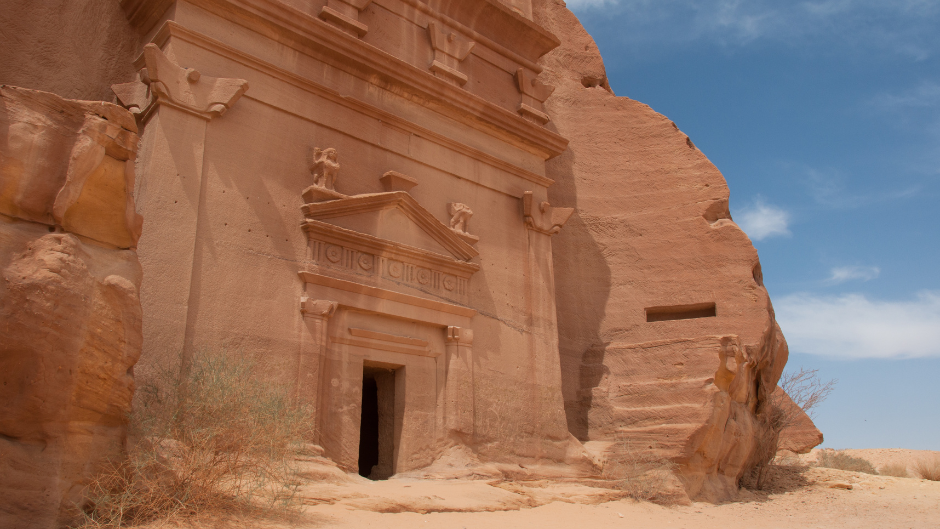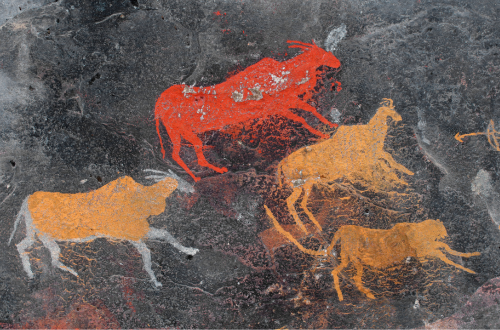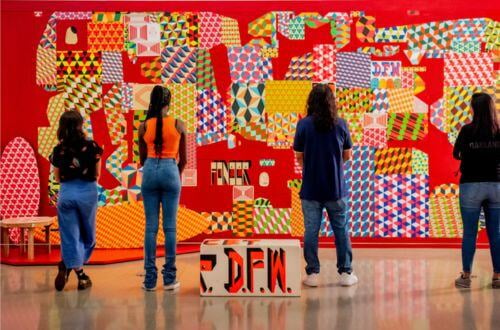
Through anthropology courses, students learn to understand the human experience across cultures and through time, developing a greater appreciation for cultural diversity as well as a better understanding of our own society and culture.
Department Overview
Anthropology is the holistic study of humans from the biological, socio-cultural, historical and political-economic perspectives. Courses in Physical Anthropology focus upon the biological/physical aspects of humans, tracing our origins, evolutionary development, genetic diversity and relationship to other species. Courses in Archaeology emphasize understanding human behavior through the study of the material artifacts that people have left behind. Additionally, they study how people construct their social and cultural lives in different societies around the world.
 Career Opportunities
Career Opportunities
An archaeology degree opens up various career opportunities related to the study and preservation of human history and artifacts. While some positions may require additional specialization or education, here are several career options for individuals with an archaeology degree:
- Archaeologist:
- Conduct fieldwork to excavate and analyze artifacts and structures.
- Work for government agencies, cultural resource management firms, or research institutions.
- Museum Curator:
- Manage collections of artifacts in museums or cultural institutions.
- Develop exhibits and educational programs to engage the public.
- Cultural Resource Manager:
- Assess the impact of development projects on archaeological sites.
- Work with government agencies or private companies to ensure the preservation of cultural resources.
- Archaeological Conservator:
- Preserve and restore artifacts to prevent deterioration.
- Work in museums, labs, or with archaeological consulting firms.
- Archaeological Illustrator/Photographer:
- Create visual representations of archaeological finds.
- Document excavations and artifacts through drawings or photography.
- Archaeological Surveyor/GIS Specialist:
- Use Geographic Information Systems (GIS) to map and analyze archaeological sites.
- Assist in planning and managing excavations.
- Heritage Manager:
- Preserve and promote cultural heritage sites.
- Work with government agencies, nonprofits, or heritage organizations.
- Cultural Resource Outreach Coordinator:
- Develop educational programs and outreach initiatives to raise public awareness about archaeology and cultural heritage.
- Archaeological Consultant:
- Provide expertise to companies or government agencies on projects that may impact archaeological sites.
- Educator/Researcher:
- Teach at the high school or university level.
- Conduct research and contribute to the academic field of archaeology.
- Archaeological Field Technician:
- Work on excavation sites under the guidance of lead archaeologists.
- Assist with data collection, artifact recovery, and site documentation.
- Archaeological Writer/Editor:
- Contribute to academic journals, magazines, or online platforms.
- Write reports, articles, or books on archaeological topics.
- Cultural Heritage Tourism Specialist:
- Develop and manage cultural heritage tourism programs.
- Promote responsible and sustainable tourism at archaeological sites.
- Archaeological Outreach Coordinator:
- Engage with the public through community outreach programs.
- Organize events, lectures, and workshops to promote archaeology awareness.
Keep in mind that networking, gaining field experience, and potentially pursuing advanced degrees can enhance your prospects in the competitive field of archaeology. Additionally, consider staying updated on technological advancements, such as digital mapping and 3D modeling, to broaden your skill set.
Contact Us
Department Chair
Kirsten Olsen
kolson@peralta.edu
Dean
Tarek ElJarrari
teljarrari@peralta.edu
Learning & Career Pathways
Science, Engineering & Math
Division
Division of Mathematics, Sciences & Engineering
Degree

This Degree is designed to prepare students for a seamless transfer with junior status and priority admission to a local CSU campus to a program or major in Anthropology or similar major for completion of a baccalaureate degree.
Oakland Museum of CA
Show your current semester sticker or staff badge, and enjoy complimentary access to the Oakland Museum of CA
Explore fascinating exhibits, discover new perspectives, and make the most of this incredible opportunity. Whether you're an art lover, history buff, or just curious, there's something for everyone at OMCA!

.png?width=500&height=330&name=Laney%20College%20Enrollment%20(3).png)
Unlock Financial Aid for College Expenses
 Transfer To A University
Transfer To A University
Laney College's AA-T and AS-T degrees guarantee junior standing admission to the CSU system, with priority for local CSU campuses in similar programs. Consult a counselor or transfer specialist for details.
.png?width=60&height=60&name=CTE%20(6).png) Meet With A Counselor
Meet With A Counselor
Counselors can help you create a Student Educational Plan (SEP) to outline the courses needed for an Associate’s degree, transfer, or certificate, even if you're unsure of your educational goals.
.png?width=60&height=60&name=CTE%20(10).png) Uncertain About Your Career Path?
Uncertain About Your Career Path?
We provide support with career exploration, self-assessment as well as the major and career decision making process to help all Laney students achieve career satisfaction and success.